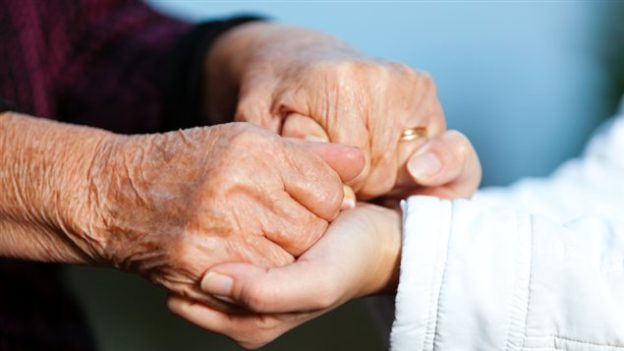How do you tell Dad that Mom has died? This challenging question confronted old friends this past week.
Compassion is such a difficult practice. It is often so difficult to know what is the right thing to do for another person.
A friend’s mother recently passed away after a protracted decline. Sadly her dad is suffering from dementia. My friend and her siblings struggled with whether they should tell him that his wife, their mom, has just passed away. Would he find the loss overwhelming? Would he even comprehend the sad news they would share? He has a right to know and grieve the loss of his wife. But if the news was too much for him to handle, should they wait until there was a better time to inform him?
Further complicating things, he was physically unable to attend the funeral.
Both options, to tell him or not, are based on compassion for dad. But which one is right for him? She reached out to me for counsel.
My first suggestion was to consult dad’s doctor, someone who knows him and is skilled in these medical issues. The doctor can help ascertain how aware is dad of his surroundings. The children, all adults, can also shed some light on dad’s cognitive abilities, but they are emotionally very close to the situation and may not clearly assess how well dad will process the news. It is likely that despite all attempts to know, it is all but impossible to appreciate how much dad truly understands.
We cannot know how people will react to this kind of news even without the complications of these circumstances. Maybe dad will have only a moment of clarity or possibly the news will stay with him. He may work through his grief or become overwhelmed by it. I have learned along my journey that we actually only have moments together. Sometimes these moments last and create enduring memories. Sometimes they fade away. The best we can do is to be fully present in each moment together and hope that it endures. The struggle that this family confronts is a struggle we all face, for each of us will experience loss and then try to reconcile with it in the aftermath. We can try to anticipate how people will respond, but we need to be careful in presuming too much, acting for them instead of allowing them the dignity of exercising his or her own agency.
The Talmud teaches that we treat parents with honor and respect. Might the ways we do that include withholding speech or information that would be hurtful? If dad still has some comprehension, won’t he feel the sadness in those surrounding him and wonder why his wife no longer visits? Further, how will he react if he learns of his wife’s passing long after the fact without the chance to mourn her loss? Arguably we honor our parents when we include them in even the most difficult things, rather than attempting to protect them. Each of us will be called upon to grapple with a similar situation. We must take the utmost care to ensure that our motives are true and that we act in the best interests of our parents and not fulfilling our own needs disguised as compassion. My friend’s struggle was because she loved her father and wanted what was best for him.
Zichronah Livrachah may my friends’ mother be a blessing for the family. May her father be given the opportunity to know that too.

